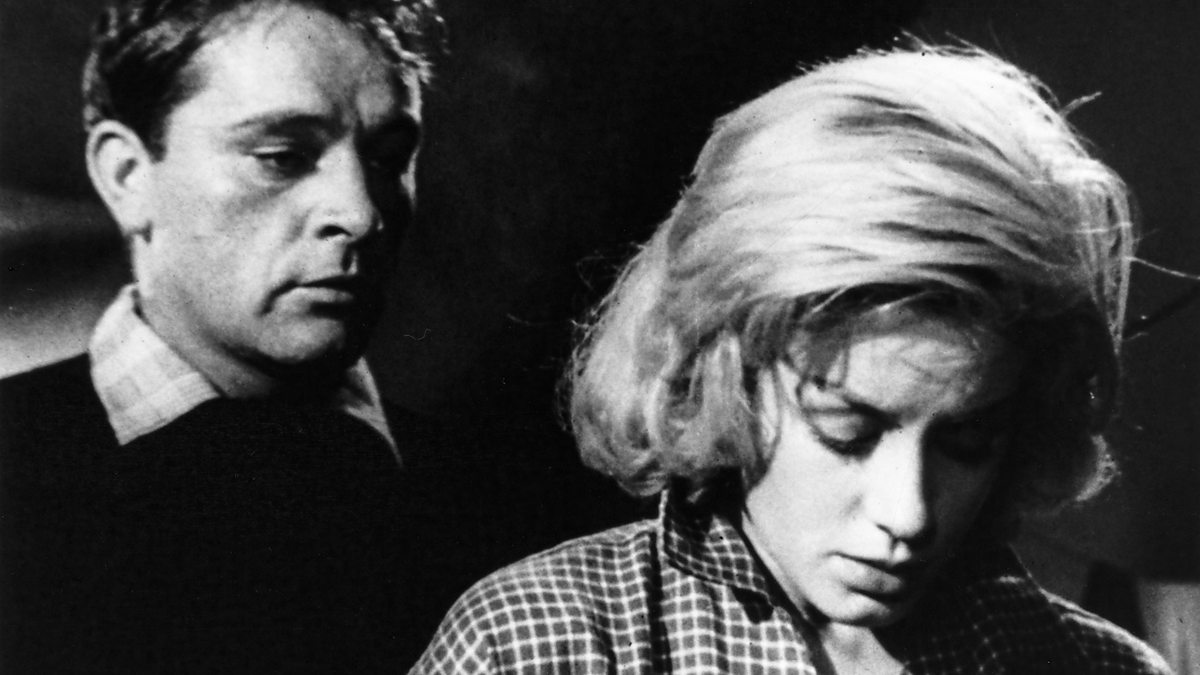If I was writing this review say 25 years ago, I would not need to provide any details about the content of this play. It formed part of the cultural scenery, largely because of the impact it caused when first performed in the 1950s. Subsequent films (including one with Richard Burton) and revivals meant that everyone knew, broadly speaking, who Jimmy Porter was, and phrases like “angry young man” and “kitchen sink drama” were part of every day discourse.
Now, in 2015, less so. The play is not performed very often, if at all, is not (at the time of writing) on GCSE syllabuses, and the reasons for Jimmy’s/John’s anger seem confused and distant. So to start with a recap. Look Back in Anger is a short play which portrays the relationships of Jimmy Porter, his wife Alison, and their friends Cliff and Helena. There is also a short appearance by Alison’s father, Colonel Redfern. Jimmy is 25, too young to have fought in the war, and is a university graduate. He runs a sweet stall in an un-named Midlands town. It is not entirely clear if this unconventional career choice is voluntary, a rejection of the rat race (in the same way that John Braine’s lead character in “Hurry on Down” becomes a window cleaner) or an expediency to pay the rent. Jimmy is often described as working class, but I think the portrayal of class in this play is more subtle than that – not too many working class people went to university in the 1950s, even if it is more white tile than redbrick, and Jimmy appears to look down on Cliff in class terms, describing him as a ruffian. He is also very erudite, reads the posh Sunday’s, and listens to classical music concerts on the radio. So hardly a working class hero.
His wife, Alison, is however, screamingly middle class. She appears to have married Jimmy, her “bit of rough” to irritate her parents, (particularly her mother), although there is also the suggestion that Jimmy is sexually irresistible. Alison is slumming it, and when the play opens with her ironing Jimmy’s clothes while he and Cliff laze around reading the Sunday papers, she is approaching the end of her tether. Jimmy taunts her constantly, appearing to have already recognised that their relationship is doomed, and therefore accelerating its end. To be fair to Jimmy, he will lash out at any target, although Cliff has developed a technique for handling him – he either gives as good as he gets, or ignores him. Not much happens beyond the grumpy conversations about their Sunday rituals, Cliff the lodger, and old friend of Jimmy’s, providing a foil to much of his good-natured abuse. Cliff and Alison have a strangely overly affectionate relationship which they act out in front of Jimmy, almost to goad him, without success.
Helena, Alison’s childhood friend, arrives as an emissary from the middle class. She spars with Jimmy constantly, and he is right to resent her presence – she makes no secret of her contempt for him and encourages Alison to leave him. Alison breaks the news that she is pregnant – this is clearly unwelcome. She plucks up the courage to leave Jimmy.
It is at this critical turning point that Osborne drops quite a dramatic bombshell (a dead metaphor if ever there was one). Alison leaves, but Helena stays, and confronts Jimmy with the news of his wife’s pregnancy. They fight, she slaps him, he cries, and she jumps on him, passionately, leaving the curtain to fall on what we are led to believe was the consummation of a passion that has been building for some time.
There is an obvious problem here – this switch is utterly unbelievable, psychologically, but the dramatic value of it far outweighs the cost in terms of the audiences’ willingness to believe in these characters. We just have to believe she finds him irresistible, not that she likes him. She quickly takes Alison’s place, literally in that she resumes her stance behind the ironing board, and familiarity quickly descends on Jimmy’s flat. In the play’s climax Alison returns, having lost her baby (strangely I mis-remembered this scene before re-reading the play, thinking she had had an abortion. The scene could be played that way – “I lost the child” could be euphemistic – but perhaps that would have been one taboo too many for Osborne’s 1950’s audience.)
So that’s the play, in summary. I wouldn’t normally spend so much time on a plot as that, but I think it is worth it to provide context for the commentary in my next blog.
